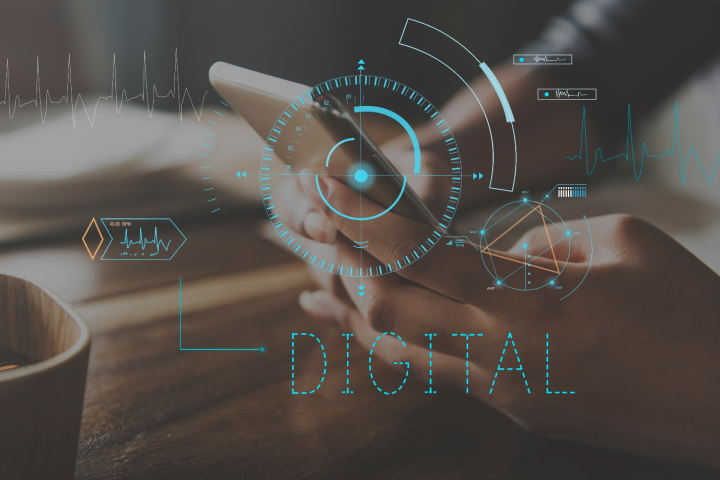Ever wondered how your skincare app seems to understand your skin’s mood swings, or how your fitness tracker somehow knows when you need a rest day? Artificial intelligence isn’t just a futuristic trend anymore, it’s quietly transforming how we manage our health, beauty, and overall well-being. But there’s another digital force evolving in parallel: crypto.
While one helps personalise your wellness routine, the other reshapes how you build and protect your financial health. Both rely on the same essential ingredient trust. Whether you’re sharing biometric data with an AI or deciding where to buy crypto, the question is the same: do you trust the system enough to let it make decisions that affect your life?
The AI Wellness Boom Meets Financial Independence
Picture this: it’s Monday morning. Instead of scrolling through endless wellness hacks, your AI assistant checks your fridge, skin selfies, and stress levels then creates a custom plan for your day, complete with a smoothie to reduce inflammation. Meanwhile, the same AI could analyse your spending habits or crypto portfolio, helping you rebalance investments before markets shift.
This is the future Salesforce calls the “agentic enterprise” AI that doesn’t just advise, but acts. These smart agents handle the small stuff: booking your next physio session, reminding you to hydrate, or even suggesting the best time to buy crypto when prices dip. The goal is seamless integration, where technology quietly improves your physical, mental, and financial wellness without adding complexity.
Brent Hayward, Salesforce’s Head of Competitive Intelligence, says trust is “the foundational level” of all AI innovation. After more than a decade in the company, including leading MuleSoft, he’s seen the power of reliability firsthand. And the comparison holds true across industries — people are more likely to let AI analyse their hormone cycles or skin hydration if they trust its data handling, just as they’re more willing to invest in digital assets when they trust the blockchain or exchange behind them.
Trust: The Shared DNA Between Wellness AI and Crypto
AI in wellness and crypto in finance share a common challenge: data security and user confidence. A skincare AI that misreads your skin type is annoying; one that leaks your biometric data is catastrophic. Likewise, a crypto exchange that mishandles your funds breaks the very foundation of decentralised trust.
Brad Arkin, Salesforce’s Chief Trust Officer, calls trust a “propellant” it’s what turns innovation into adoption. As the UK’s National Cyber Security Centre reported a 50% increase in digital incidents last year, trust-first design has become non-negotiable. Salesforce’s layered safeguards encryption, bias detection, and transparent AI decisioning mirror the best practices seen in secure crypto platforms.
In both sectors, transparency builds belief. The same principle that helps you confidently buy crypto on a verified exchange should also let you use an AI wellness app without fear of data misuse. For smaller startups in either space, partnering with established, trusted providers is now essential for survival.
Real-World Proof: Simplyhealth’s Smarter Sick Days
The best illustration of trust in action comes from Simplyhealth, a UK-based health insurer tackling Britain’s £150 billion annual sick-leave challenge. Average sick days hit 9.4 last year, hurting productivity across industries.
Working with Salesforce, Simplyhealth automated up to 90% of routine tasks, GP bookings, physiotherapy claims, and reimbursements freeing human teams to focus on empathy and care. Two years ago, they handled 25 members a day; now it’s 50. Claims are processed 82% automatically, often reimbursed within hours.
The same logic drives decentralised finance: automation builds efficiency. Smart contracts much like AI wellness agents remove bottlenecks, ensuring accuracy, consistency, and trust. Just as users now trust blockchain protocols to execute payments when they buy crypto, Simplyhealth’s members trust AI agents to process claims accurately and securely.
Wendy Nicholls, their Chief Customer Officer, says accessibility is the key: “It should be the working folk who have it all those key workers who keep the economy running.” AI-driven healthcare plans now include affordable mental health support and beauty diagnostics that flag acne triggers or stress signals wellness for everyone, not just executives.
The Human Touch: Empathy in the Age of Automation
AI might handle logistics, but empathy remains irreplaceable. Simplyhealth made that clear by achieving a 99% satisfaction rate and slashing complaints by over 95% in four years. Even with 40% fewer routine service roles, remaining employees saw 30–35% pay rises for managing complex cases a model that echoes crypto’s ethos of decentralisation and empowerment: fewer intermediaries, more value for individuals.
McKinsey predicts that 30% of UK job tasks could be automated by 2030, but the goal isn’t replacement, it’s enhancement. Whether it’s an AI that personalises your diet or a crypto algorithm that automates investment rebalancing, technology is moving toward augmentation, not alienation.
The takeaway? The future of wellness isn’t just about fitness trackers and serums, it’s about financial wellness, digital trust, and human balance. As AI personalises your health and crypto secures your wealth, both rely on the same principle: trust the process, verify the system, and stay in control.
As Nicholls puts it: “The human side to healthcare is the single most important thing.” The same could be said for finance. Because whether you’re improving your skin, your sleep, or your savings, the future of smart living depends on technologies that work with you, not instead of you.





